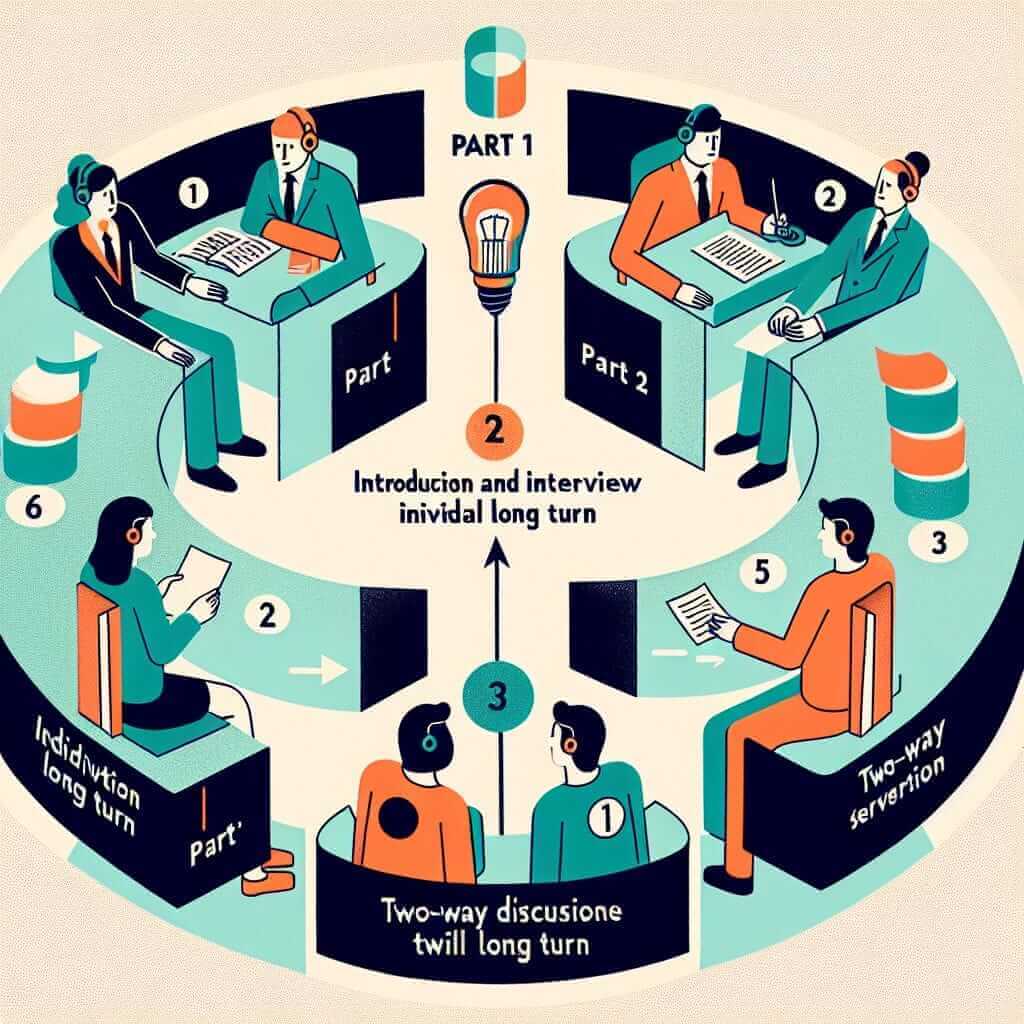The IELTS Speaking test often sparks anxiety among candidates, leading to many questions about the test format and what’s permissible. One common query is, “Can we ask for draft paper in the IELTS Speaking test?” Let’s address this concern and discuss how to navigate note-taking in this part of the exam.
Understanding the IELTS Speaking Test Format
The IELTS Speaking test is a one-on-one interview with a certified examiner, designed to assess your spoken English fluency, coherence, vocabulary, grammatical accuracy, and pronunciation. It’s divided into three parts:
- Part 1: Introduction and Interview: The examiner will ask general questions about yourself, your interests, and familiar topics.
- Part 2: Individual Long Turn: You’ll receive a cue card with a topic, have one minute to prepare your response, and then speak for 1-2 minutes.
- Part 3: Two-Way Discussion: The examiner will engage you in a deeper discussion related to the topic in Part 2.
Addressing the Draft Paper Question
The short answer is no, you cannot ask for draft paper during the IELTS Speaking test. The Speaking test aims to assess your spontaneous speaking abilities, and note-taking is not permitted.
Here’s why:
- Spontaneity: The test focuses on your ability to communicate fluently and spontaneously in English, much like in real-life conversations.
- Time Constraints: Each part of the Speaking test has specific time limits, and allowing note-taking would disrupt the flow and time management.
- Focus on Speaking: The IELTS Speaking test is not a writing test. The examiners are primarily evaluating your spoken language skills.

Making the Most of Preparation Time (Part 2)
While you can’t use draft paper, you are given one minute to prepare for Part 2. Use this time effectively:
- Identify Keywords: Circle or underline key points on the cue card to guide your response.
- Brainstorm Ideas: Quickly jot down relevant ideas, vocabulary, or examples that come to mind.
- Structure Your Response: Mentally outline a beginning, middle, and end to keep your speech organized.
Tips for Success in the IELTS Speaking Test
- Practice Regularly: Engage in mock speaking tests and record yourself to identify areas for improvement.
- Expand Your Vocabulary: Learn and practice using a wide range of vocabulary related to common IELTS topics.
- Focus on Fluency and Coherence: Speak naturally, use linking words and phrases to connect ideas, and avoid long pauses.
- Pay Attention to Pronunciation: Practice clear pronunciation and intonation to ensure your message is understood.
Conclusion
While you cannot request draft paper during the IELTS Speaking test, understanding the test format and utilizing the preparation time effectively can significantly boost your confidence and performance. Remember to practice regularly, expand your vocabulary, and focus on clear, fluent communication to excel in this component of the IELTS exam.